| We can review your current methods and make suggestions to improve the quality of the finished product. We also test materials in our laboratory for presence of noxious pathogens or beneficial microbes. Scroll down for a sample of the services we offer. | |
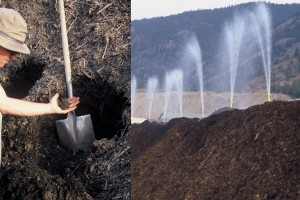 |
Preparation of good compostGood compost requires proper start-up materials, proper temperature and adequate moisture. Ensure all these steps are done properly. We can advise on the proper mixture and monitor your piles for temperature and moisture content. We can do trouble shooting – for compost that smells foul or compost that catches on fire. You can find more information at the page Sustainable Practices. |
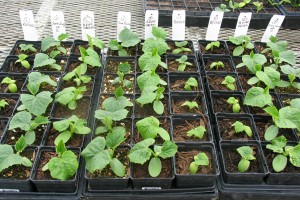 |
Testing of final qualityA finished compost should be tested to ensure the material is stable and free of pathogens. We offer testing of compost maturity based on the “Canadian Composting Guidelines”. We use seed germination and the Solvita test for microbial respiration. We also have laboratory procedures with selective media to verify microbial content. Composts of lower quality will have a high count of pathogens such as Pythium – using this product may trigger a root rot outbreak! |
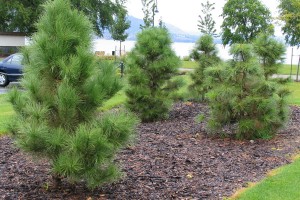 |
Using the finished productA good quality finished compost can be put to many uses. The product can be top dressed around existing plants or incorporate into the soil to improve structure and water retention. We can design “recipes” and application rates that are appropriate to your situation. We use composted products as one component of the potting mix for greenhouse and nursery container production. In all cases, using a compost of high quality will improve soil biological activity. |
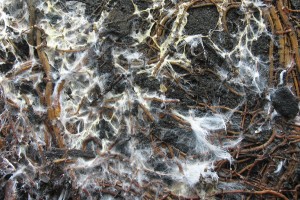 |
Preparation of disease suppressive compostHigh quality compost can help plants fight off root and leaf diseases! This is fascinating. Let us show you. Once you understand, you can do it yourself. In nature, disease suppression is triggered by beneficial micro-organisms present on slightly immature organic matter. In recent years, scientists have deciphered the technical reasons. Today, we know enough to manipulate the composting process to obtain a finished product that is rich in the correct mixture of beneficial microbes. You can find more information at the page Technical Info. |
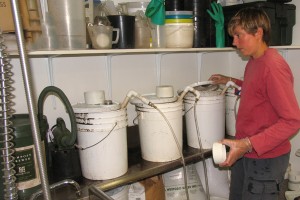 |
Compost teaCompost tea may be the future of horticulture! Compost tea is more than putting compost in water. It also means adding air and specific food to stimulate the growth of specific beneficial microbes. We have done compost tea for many years. We have learned one difficult lesson: good compost tea depends on good compost. Learn to do good compost, then learn to do compost tea. We can design a recipe that is specific for your needs. You can find more information at the page Sustainable Practices. |

